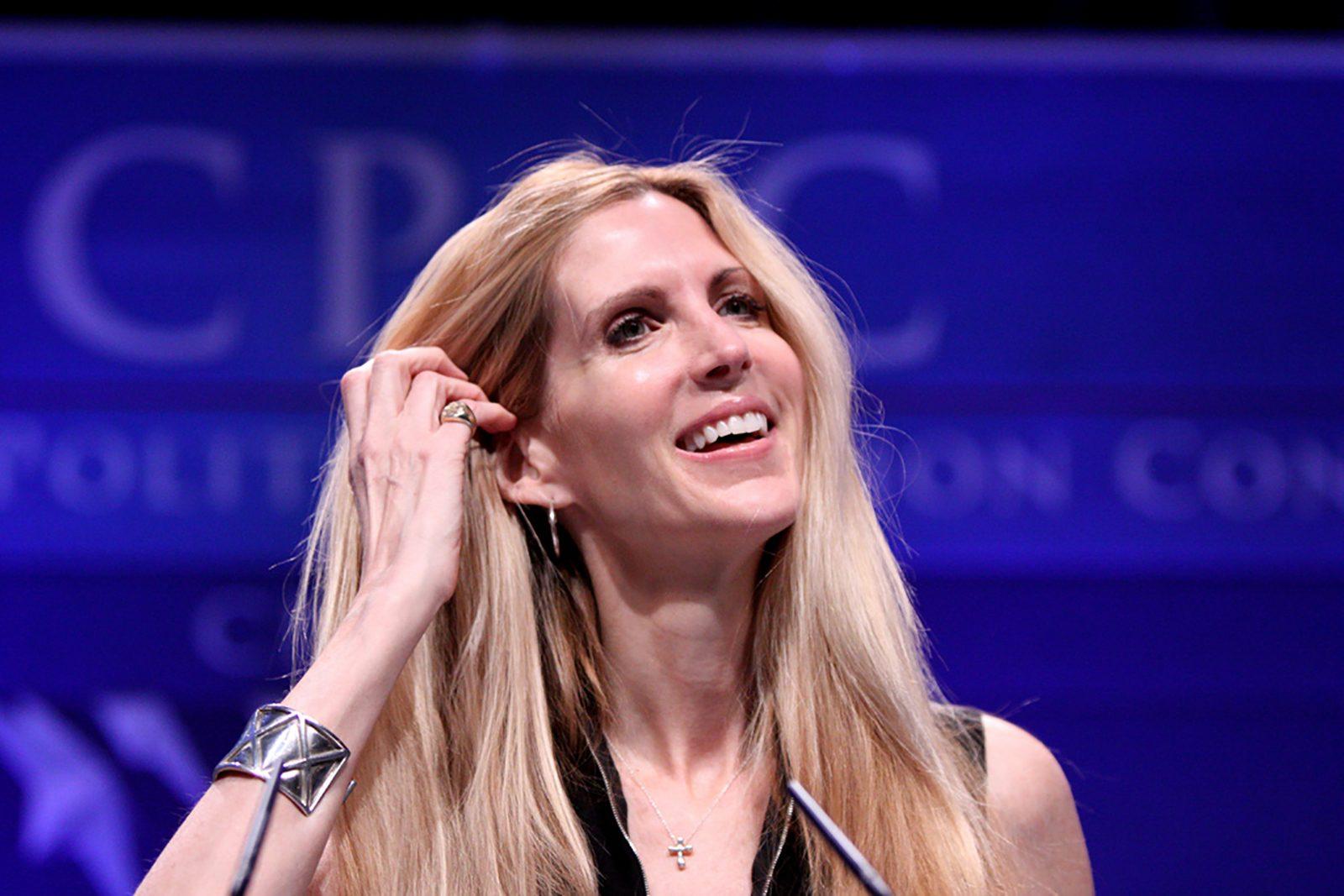To many, the University of California, Berkeley has strayed far from its roots as the birthplace of the free speech movement of the 1960s. In the wake of the 2016 election, Berkeley has gained national attention for violent altercations between far right and far left groups. Over the past few weeks, a scheduling conflict between the university and conservative commentator Ann Coulter has reignited the debate over free speech on college campuses.
The Berkeley College Republicans and Young America’s Foundation at UC Berkeley intended to sponsor Ann Coulter’s on-campus talk. However, on April 19, university officials informed the student groups that the event would be canceled. In a letter to the College Republicans, the UC Berkeley administration said they were “unable to find a safe and suitable venue” due to safety concerns. The university proposed alternative dates, times and locations, all of which Coulter rejected. These alternative times were intentionally early in the day to draw a smaller audience and mitigate potential violence. However, Coulter persisted telling The New York Times: “I was invited to speak by two groups on campus, so I intend to speak.”
Conservatives on Berkeley’s campus feel as if the university’s administration was attempting to silence conservative voices on campus. The College Republicans have decided to file a lawsuit claiming that the university has violated the student’s first amendment rights. School officials have denied these claims. Naweed Tahmas, the spokesperson for Berkeley’s College Republicans said conservative students are subject to frequent harassment on campus. Tahmas has been a victim of such harassment, and told FOX News, “One time I walked on campus and I saw flyers on campus with my face on it calling me a fascist, calling me a neo-Nazi. I don’t know how many neo-Nazis you know that are named Naweed and have brown skin.”
Yesterday both campus groups backed out of sponsoring Coulter’s event. The Young American’s Foundation at UC Berkeley said in a statement to the Times: “Young America’s Foundation will not jeopardize the safety of its staff or students.” Coulter commented on the cancellation saying, “It’s a sad day for free speech.”
The students at Berkeley have a history of disinviting controversial speakers. In 2014 Berkeley students tried to disinvite the comedian Bill Maher from speaking at Berkeley’s commencement. The university did not honor the student’s plea to disinvite Maher saying: “This university has not in the past and will not in the future shy away from hosting speakers who some deem provocative.” Funny enough, Bill Maher frequently hosts Ann Coulter on his HBO show “Real Time with Bill Maher.” Maher has been a consistent champion of free speech by consciously selecting guests and panelists on his show who possess a wide range of opposing viewpoints. This February, Maher hosted conservative provocateur Milo Yiannopoulos after violent protests prevented Yiannopoulos from speaking on Berkeley’s campus. Shortly after Maher gave Yiannopoulos a platform, disturbing comments Yiannopoulos made regarding pedofilia were unearthed. Yiannopoulos subsequently lost his book deal from Simon and Schuster and resigned from his position as senior editor at Breitbart News. Prior to his resignation, Yiannopoulos toured the campus provoking liberals by saying inflammatory statements such as: “America has a Muslim problem” and “Birth control makes women unattractive and crazy.”
Often times, on his campus tours Yiannopoulos was shouted at by protesters. These protesters likely alienated students who wanted to ask Yiannopoulos questions and engage in a conversation. Yiannopoulos gained notoriety through making outrageous statements and drawing controversy, but aside from saying provocative things there really wasn’t much to him. Yiannopoulos gained his platform because he taunted liberals and they played right into his hand. The far left becomes a caricature which provided ample material for conservative provocateurs and commentators. This pattern of behavior has displayed adds validity to jokes about the “intolerant left” and “regressive left” while alienating political moderates.
Berkeley as an institution is in an incredibly confounding position. They are beholden to the will of the students when it comes to bringing speakers on campus. As students of Berkeley, the College Republicans shouldn’t be subjected to any institutional discrimination. But it seems as if threats from far-left groups, such as Antifa, were the driving force behind Coulter’s cancellation. Berkeley responded to legitimate safety concerns. As an institution, Berkeley has a duty to protect the first amendment rights of their students and faculty. This includes the right to protest. However, Berkeley’s most important responsibility is to ensure the physical safety of those affiliated with the university and their guest. Berkeley’s administration has consistently supported controversial speakers on campus, so they likely did not take the cancellation of this event lightly. According to intel known to university administrators, Coulter was in “grave danger.”
The controversy surrounding Ann Coulter and her speech at UC Berkeley epitomizes the negative impact political polarization has on our institutes of higher learning. In order to grow as scholars, we college students must be exposed to a wide variety of viewpoints, opinions and schools of thought. UC Berkeley should have gone to extreme lengths to ensure a safe event. Committing to the protection of a controversial speaker would have been a fitting testament to Berkeley’s legacy as a bastion for free speech. Massachusetts Sen. Elizabeth Warren agrees. Warren, who was famously silenced by Mitch McConnell, said, “My view is, let her speak and just don’t show up. If you don’t like it, don’t show up.” She goes on to say, “You know, look, Ann Coulter has gotten a bigger platform because someone tried to deny her a chance to speak.”
As the old adage goes, sunlight is the best disinfectant. If these campus speakers really have bad ideas and illogical arguments, they will reveal themselves if we allow them to speak. This was certainly true for Yiannopoulos. Only time will tell if we will know the fate of other speakers.
CORRECTION: In an earlier version of this article, Berkeley was misspelled twice. The current version reflects this change.



























































































































